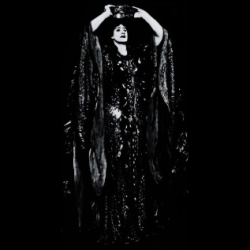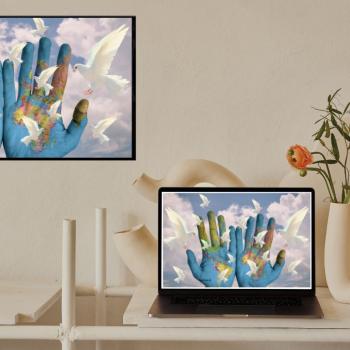Part of the poison infecting American politics and religion is the stubborn dogma that institutions are irrelevant. Competitive individualism is a theological tenet of American life, and it results in a blind belief that every problem begins and ends with "personal responsibility."
"We live in our faith," Jesse Jackson explained, diverging in his analysis from mainstream Americana, "but we live under the law." The simplicity of that statement disguises the profundity of insight into the arranged marriage between the structural and the spiritual. The ongoing routines and rituals of that relationship destroy American illusions of individualism, even at the seemingly harmless end of positive thinking.
When I quoted Dorothy Day's identification of the biggest challenge in the modern era as inciting a "revolution of the heart," Jackson gave a surprising objection. He explained that there were likely many good white people who did not feel comfortable with blacks sitting at one end of the bus, with them on another, but "living under the law" required them to act as agents of segregation.
"It's not a matter of being a good person if you don't live under a good law," Jackson said. "When the law changes, the culture changes. When the law changed, a white man might not want to sit next to a black woman on the bus, but he might have to if he doesn't want to stand. So, once the law changes, behavior changes. Then, attitudes might begin to change. That white man might discover that sitting next to a black woman doesn't offend him. It doesn't make the bus move any slower. He might drop something, and she might pick it up for him, and slowly, he might realize that they can communicate. The transformation is law, behavior, attitude."
There is little difficulty in observing the truth of Jackson's admonition for using religion as a weapon to combat unjust laws when he tells stories of past achievements and contributions to freedom and equality. His tutelage under Martin Luther King not only added to the foundation of his faith, but also gave him the baptism by fire of fighting segregation, and confronting the despair of death and disappointment. I asked Jackson how he maintains faith in the face of suffering, from the Lorraine Hotel where Dr. King's heroic life ended with a bullet to the recent police killings of unarmed black men. Jackson has taken a leadership role in the cause of Dontre Hamilton, a case similar to Michael Brown, but in Milwaukee where Hamilton was shot fourteen times by a police office, despite having no firearm, under highly questionable circumstances. Imploring followers and marchers to use Brown, Garner, and Hamilton's memories and legacies as "instruments for peace," Jackson makes the case for the "power of resurrection" — "They speak louder from the grave than their killers do walking the street."
The man who coined the phrase, "keep hope alive," is not a naïve optimist, but an adherent to the combative spirituality of keeping a higher hope as fuel to the engine of justice. It is the justice to which King refers in his cosmology of ethics: "The arc of the moral universe is long, but it bends toward justice."
"I've seen the ways hatred, fear, and ignorance manifest themselves," Jackson said, "but my faith is such that I can forgive those who know not, and accept those who do." Jackson then summarized his journey from his first arrest in Greeneville, South Carolina for trying to use a public library to the changes visible in the present: "We've been winning for a long time. We've just had such a deep hole from which to climb. It is sometimes hard to see that."
He also recalled one of his most significant victories for religious freedom. Although largely forgotten and unforgivably uncredited, Jackson succeeded in "softening the situation" for believing and practicing Christians in Cuba. During his 1983 visit with Fidel Castro, he met with several pastors who reported the threats and persecution they endured as Christians in their country. Later that evening, Jackson had a long dialogue with Castro, and asked him, "What do you have against the church?"
Castro explained that as a young man he cherished and honored the Christian principles of helping the poor, and judging men by how they treat the "least of these," but took an adversarial position against the church when they opposed the Cuban revolution and had expressed full loyalty to the corrupt Batista regime, effectively helping him transform the country into a corrupt and exploitative playground for the rich. Castro requested that Jackson speak at the University of Havana, and Jackson said he would do so only if Castro met two conditions. First, he had to release twenty-six political prisoners, most of whom were there for practicing their faith. For example, Thomas White, a Los Angeles school teacher, had been in a Cuban prison for months before Jackson's visit because Cuban authorities caught him distributing evangelical leaflets throughout the country. Jackson's second stipulation for agreeing to appear with Castro at the university was that he attend a church service with him.




